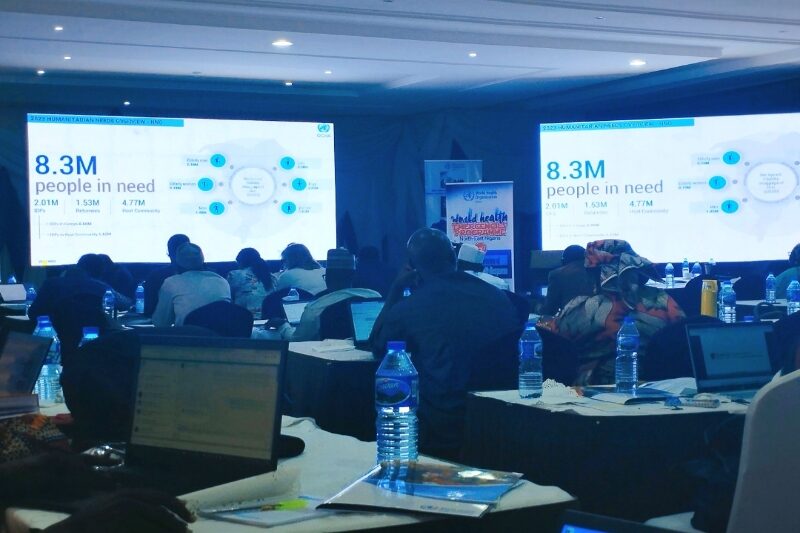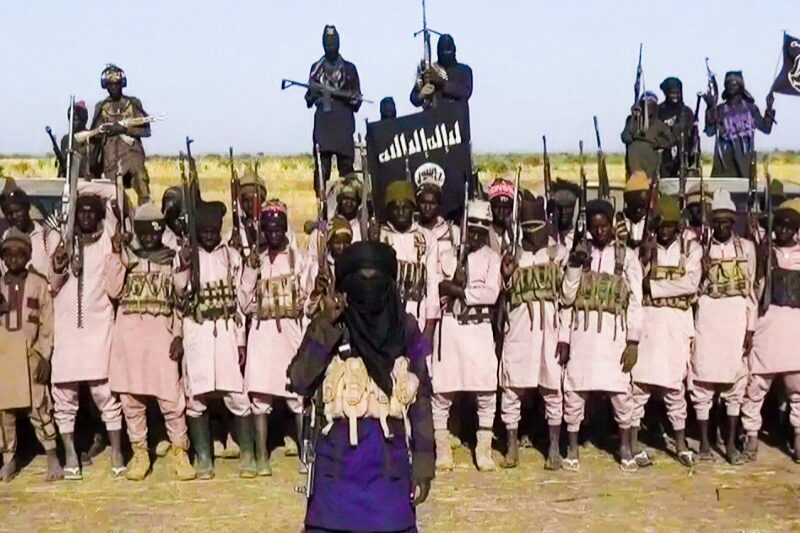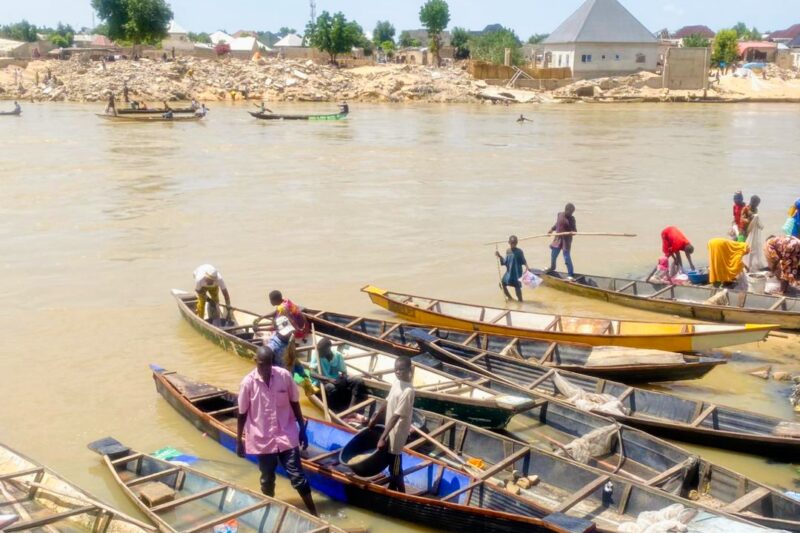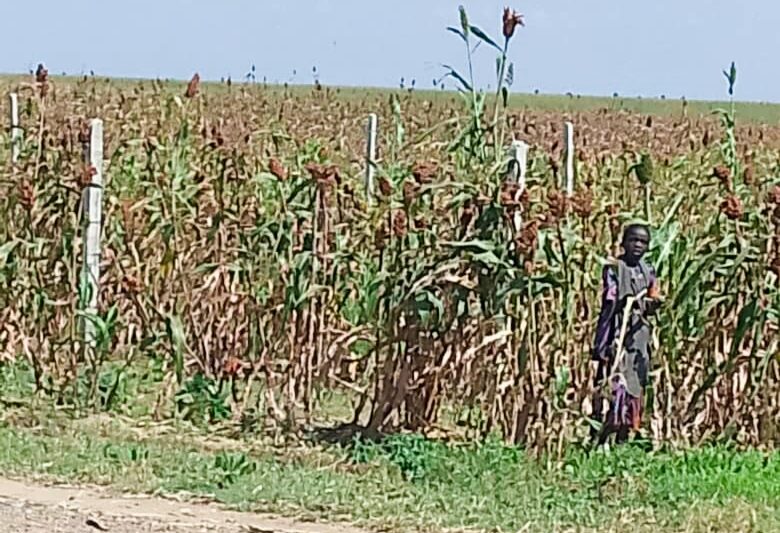The 13-year insurgency in northeastern Nigeria resulted in the closure of numerous hospitals, clinics and other health facilities in the region and it is estimated that 8.3 million people – mostly internally displaced persons and those living in remote areas – still require medical interventions and are at risk of impoverishment and threats of violence.
This alarming figure was disclosed at a meeting of the World Health Emergencies Progamme Joint Operations Review on humanitarian support held in Maiduguri in Borno State, which began on Monday, February 6, and ended on Wednesday, February 8.
The three-day meeting was the 12th in a series of its kind since the World Health Organisation (WHO) declared the humanitarian situation in the northeast in 2016 at grade 3, the highest response level in terms of emergency interventions, owing to its gravity and its effect on public health, which put intense pressure on medical services in affected communities in the Borno, Adamawa and Yobe states.
Because of reduced access to basic health services, the populations in these states had become even more vulnerable to disease outbreaks, malnutrition, injuries, gender-based violence (GBV) and mental disorders.
Following four cycles of grading reviews the emergency was graded as “protracted”.
In the WHO’s rating, a protracted emergency is an environment in which a significant proportion of the population is acutely vulnerable to death, disease and disruption of livelihoods over a prolonged period.
Governance in these settings was often weak, with limited state capacity to respond to, and mitigate, the threats to the population, or provide adequate levels of protection.
Public health experts from the WHO’s headquarters, its African Region and the Nigerian country office attended the meeting, as did officials from the host governments of Borno, Adamawa, and Yobe states, the Nigerian Federal Ministry of Health, Nigeria Centre for Disease Control, partners and donors, including the European Commission Humanitarian Aid and Civil Protection (ECHO), the US Agency for International Development (USAID) and the government of Germany.
Dr Walter Kazadi Mulombo, the WHO representative to Nigeria, praised the three states for the significant progress they had made in the northeast, especially the planned resettlement of more than 1.7 million IDPs.
He reiterated the WHO’s commitment towards ensuring that health services were provided to those settled.
Responding to a request by Borno State to the WHO, Mulombo said: “Resources will be deployed for revitalisation of primary healthcare for achieving universal health coverage.
“The WHO and its partners have been implementing operational plans to ensure the provision of quality health services to populations at risk.”
Participants at the meeting examined emergency responses in 2022 to come up with better-aligned responses and best practices going forward.
Planned life-saving health services interventions this year would target 4,285,848 people, including 621,939 people in IDP camps, 837,285 out of camps, 1,485,066 returnees and 1,341,558 people living in host communities.
Bunu Mohammed, head of the Borno State chapter of the Network for Civil Society Organisations of Nigeria (NECSON), told RNI that participants at the meeting discussed and brainstormed how best to approach remote areas that were still experiencing severe health-related issues and challenges.
“Many hospitals and health facilities were destroyed as a result of the 13-year insurgency not only in Borno State but also in other states in northeastern Nigeria.
The activities of the insurgents coupled with natural disasters, such as flooding, have plunged many people, particularly IDPs, into humanitarian crises resulting in them not being able to access effective healthcare services.
“It is the responsibility of all development partners, international non-governmental organisations [iNGOs], local NGOs and humanitarian agencies to continue to consolidate the efforts of the Nigerian government to ensure effective healthcare service delivery to IDPs and returnees, with a special focus on those who living in hard-to-reach areas,” Mohammed said.
Largema Bukar, a medical doctor with the Lafiya health programme in Borno State, said: “This meeting has come at the right time because many of our people are in dire need of health assistance.”
The discussion at the meeting revolved around the WHO’s four strategic objectives for humanitarian response in the northeast:
• To maintain and improve access and quality of health service delivery and strengthen health systems;
• Strengthen health information management, including surveillance, prevention and alerts;
• Strengthen national and partner capacity to promptly respond to and contain outbreaks and other health emergencies; and
• Ensure effective local leadership, partner coordination and operations support.
Bukar said there were about 200 NGOs, humanitarian agencies and development partners, such as the United Nations and the WHO, working in the area. However, each agency had a time frame within which they worked and, once their time was up, they left.
“Humanitarian agencies come and go but the vulnerable people remain. That is why I urge the Borno State government to create strong relationships and synergies with NGOs and humanitarian agencies, especially the WHO so that it learns new methods and approaches to maintain, control and resolve all health-related issues through effective healthcare service delivery. The state government must sustain the synergistic efforts, even after the departure of these NGOs.”
The WHO’s Mulombo called on humanitarian and development partners in Nigeria to redouble their efforts on resilience and building the capacity of the people affected by conflict in northeast.
He also urged the partners to synergise and work together as a team to implement programmes to improve livelihoods support and help assistance in emergencies by responding to pandemics promptly in collaboration with the state governments.
Mulombo emphasised the need for humanitarian partners across the board to continue to support the vulnerable and refugees by providing them and their communities with all the necessary services.
He urged partners to develop and prioritise their humanitarian activities in the conflict-affected states, particularly, in the aspects of health, livelihoods support, the safety and security of the people, as well as the effects of climate change.
He reaffirmed the WHO’s commitment to continue providing the critical leadership and coordination of health-sector partners to provide medical services to the populations of all three states, as well as to strengthen the capacities of healthcare workers so that they could provide quality medical services to the underserved and vulnerable communities in the region.
Mulombo emphasised that the WHO would help identify opportunities and pilot ways to incorporate the recommendations from the High-Level Conference on the Lake Chad Region in January – which focused on stabilisation, localisation and resilience processes – into the humanitarian responses in the states this year.
SHETTIMA LAWAN MONGUNO









